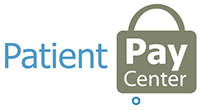Oral Appliance Therapy in North Royalton OH
Do you wake up in the morning feeling tired and unrefreshed? Do you experience morning headaches, irritability, and bouts of memory loss? If you answered yes to one or more of these questions, you might be suffering from a breathing or movement disorder such as sleep apnea, snoring, or bruxism (teeth grinding).
At North Royalton Family Dental, we understand the effect a sleeping disorder can have on your personal and professional life. Dr. Nathaniel M. Taylor and his team of dental professionals provide various dental treatments, including oral appliance therapy for breathing and movement disorders. Dr. Taylor and his team are ready to give you expert advice on the best form of treatment for your particular condition and help you regain a good night's sleep.
What Is Oral Appliance Therapy?
Oral appliance therapy treats breathing and movement disorders such as snoring, obstructive sleep apnea (OSA), bruxism, and temporomandibular joint issues (TMJ). Suppose you suspect that you might have any of these disorders. In that case, your general treating physician will perform an overnight sleep study to determine the cause. We collaborate with your physician to select and fit a custom-made oral appliance that is most effective for your particular condition.
One example of such an appliance is a removable oral device that fits over your teeth, very much like an orthodontic retainer or sports mouthguard. Dr. Nathaniel Taylor and his professional team have undergone special training in treating sleep disorders. They will custom-fit your oral appliance to work correctly and provide ongoing treatment to ensure your device remains comfortable and effective.
Is Oral Appliance Therapy Right for Me?
If you suspect you are suffering from a sleeping disorder, the most common symptoms to look out for are sleepiness and fatigue during the daytime, having trouble sleeping, frequent waking during the night, and difficulty concentrating on tasks. Other symptoms include loud or frequent snoring, choking or gasping, and pauses in breathing during sleeping. Certain symptoms are specific to a particular disorder, which can be defined as follows:
Breathing Disorders
Obstructive Sleep Apnea
Obstructive sleep apnea is a common but severe breathing disorder. An "apnea" refers to a short pause in breathing caused by the tissue in the back of your throat collapsing. When this happens, your airways narrow, limiting the amount of air that reaches your lungs and causing you to stop breathing. In this process, your body becomes deprived of oxygen, leading to loud snoring or repeated choking throughout the night.
Treatment of Obstructive Sleep Apnea
Continuous positive airway pressure therapy is widely used as a nonsurgical treatment for obstructive sleep apnea. CPAP uses a machine that increases air pressure in your throat to prevent your airway from collapsing when you breathe in. The CPAP machine comes with a nasal continuous positive airway pressure, or NCPAP mask, that covers your nose. If you are currently using a CPAP machine and are experiencing discomfort and symptoms such as a dry nose, sore throat, and nasal congestion, Dr. Taylor is available to discuss alternative appliance therapy options such as a mandibular advancement device (MAD) or a tongue retaining device.
A MAD device is similar to a mouth guard worn by athletes. It covers your top and bottom teeth and works by moving the jaw and tongue forward, reducing throat constriction.
A tongue retaining device is much like a splint that holds your tongue in place to keep your airways open.
Snoring
Snoring affects most patients at one time or the other and is caused by airflow, making the tissues in the back of your throat vibrate when you breathe. Light snoring might not disrupt your sleep quality, but it could be associated with sleep apnea if it becomes heavier and affects you and your partner. We can make a custom-fit oral appliance that will allow air to move freely through your airway, diminishing your snoring and helping you enjoy a better night's sleep.
Movement Disorders
Bruxism
Do you wake up with a sore jaw, headache, and sensitive teeth? In this case, you might suffer from "sleep bruxism" or night gnashing. Although quite a common habit, grinding your teeth and clenching your jaw can cause your teeth to fracture and even TMJ issues that can hinder chewing and cause "clicking" noises in your jaw. Grinding your teeth has several causes, such as stress or anxiety. Our team will work with you and your regular physician to address the causes and custom-make a night-time retainer to prevent further damage to your mouth, teeth, and jaw.
Temporomandibular Joint Issues (TMJ)
If you have been diagnosed with TMJ issues, including pain in your jaw muscles and problems moving your jaws, oral appliance therapy can help provide pain relief and improve your jaw function so it can move smoothly. These include bite plates and mouth guards that fit between and over your upper and lower teeth and help to stabilize your jaw.
What Are the Advantages of Oral Appliance Therapy?
There are several advantages to oral appliance therapy. A dental appliance or mandibular advancement device is small enough to fit into or around your mouth and keep your air passages open so that you can enjoy a good night's sleep. Unlike a CPAP machine that needs electricity to work, dental appliances are lightweight, portable, and convenient for traveling. They are non-invasive and don't require any form of surgery. Dr. Nathaniel Taylor and his team will model your device to fit your jaw, teeth, tongue, and airway for a customized fit and reduce the chances of you experiencing discomfort.
Regain Your Sleep
We pride ourselves on delivering state-of-the-art full-service dental care. Become part of our family today. Why wait to get a good night's sleep?
Contact Dr. Nathaniel Taylor at North Royalton Family Dental and speak to one of his team of dental professionals to find out more about how oral appliance therapy can help regain your health and overall quality of life.

